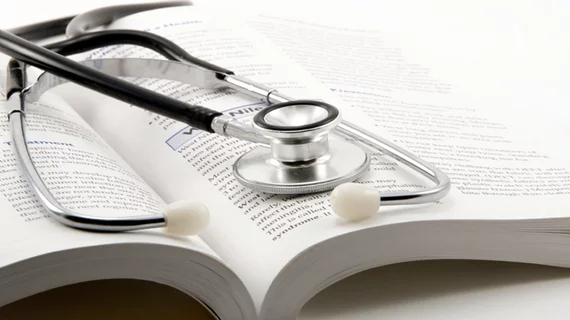Stethoscopes: Timeless, or on their way out?
Cardiology is in the midst of a major transition from one of its best-loved tools—the stethoscope—to more high-tech handheld solutions, according to the AP. But does that mean the original device is becoming obsolete?
Some, like cardiologist Eric Topol, think so, journalist Lindsey Tanner reported. Others, including Chicago pediatrician Dave Drelicharz, say they feel “almost naked” without a stethoscope around their shoulders.
Nonetheless, the technology, now 200 years old, is facing somewhat of an identity crisis. Its rivals, including handheld ultrasound devices, go further to provide physicians with not just sound, but images and advice. In addition to newer ultrasound devices, updated digital stethoscopes are reinforced with artificial intelligence and can be paired with smartphones or other devices to visualize heartbeats, detect any abnormalities and flag those abnormalities for doctors.
According to the AP, many medical schools across the U.S. are caught between the two techniques, at once teaching traditional stethoscope skills and introducing newer technologies. Medical students still need to be proficient in using stethoscopes to get their doctors’ licenses, and a trained ear is important in cardiology.
“The old stethoscope is kind of falling on hard times in terms of rigorous training,” James Thomas, a cardiologist at Northwestern Medicine in Chicago, said. “Some recent studies have shown that graduates in internal medicine and emergency medicine may miss as many as half of murmurs using a stethoscope.”
Read the full story below:

